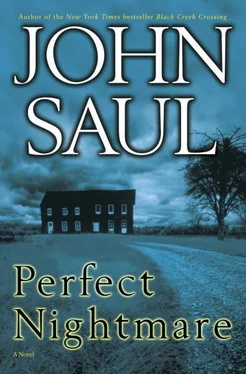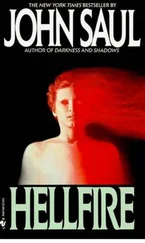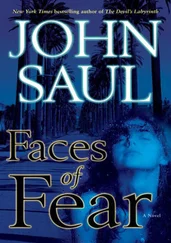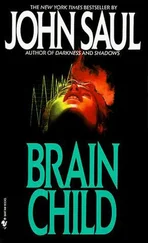“Claire knows the girl’s mother,” his employer replied. “Said we actually met once at a fund-raiser. What a horrible thing.” “I can barely imagine what they must be going through,” Neville murmured.
Again his employer glanced up, his lips compressing into a hard line. “No,” he said. “I suppose you can’t. But I can.” Neville felt himself flush as their eyes met once again. Then he picked up the tray and left the room, and Patrick, alone, turned back to the paper and focused on the story. It had been almost a week, with no word. The girl’s family was frantic, and understandably so.
Unlike Neville Cavanaugh, Patrick could more than imagine what they must be going through.
He knew exactly what they were feeling.
And then, as he read the story one more time, he remembered the words spoken two nights earlier by the man who had lost his twins.
Find someone else who’s hurting as bad as you are, and try to give them a hand.
Picking up the phone Neville had left on the table, Patrick dialed information, asked for the number of the Camden Green police department, then waited while the connection was made.
Moments later he’d gone through several people before the person he was seeking finally came on the line, his voice flat. “Sergeant Grant.” “Sergeant Grant, this is Patrick Shields.”
“Mr. Shields,” Grant said, his voice immediately losing its neutral tone. Though he hadn’t actually spoken to Patrick Shields since they were children, the policeman was as aware of who Patrick was — and what had happened to his family — as everybody else in Camden Green. “It’s been a while. How are you holding up?” “I’m getting along,” Patrick replied. “Thank you for asking. But I’m not calling about myself. I’m wondering about the Marshall girl. Has there been any progress on the case?” He heard the sergeant hesitate. “I’m thinking I’d like to try to do something for her parents,” he explained. When Grant still made no reply, Patrick told him, “I think I know how they must be feeling.” Another silence, and now Patrick wondered if maybe he shouldn’t have called. “I guess maybe—” he began, then forced himself to go on. “I thought perhaps if I posted a reward…” His voice trailed off, and once again he wondered if he’d made a mistake, if he should just keep to himself after all.
Then Andrew Grant responded. “You never know,” he said. “Sometimes rewards bring out new leads. That’s very generous of you.” “Then consider it done,” Patrick said. “Do you think ten thousand would help?”
“It would sure get me calling,” Grant replied. “You’ll have to run that by the family. They’re the ones who’ll have to decide. But if they go along with it, it’s fine with me.” Now it was Patrick who was silent. “Is there a problem with that?” Grant asked when the silence went on too long.
“I — Well, I think I’d prefer the source to remain anonymous. So if you wouldn’t mind, perhaps you could inform the family?” “I understand,” Grant said. “Of course. I’ll get back to you.”
Patrick clicked off the phone, set it down on the table, and took a blueberry muffin from the basket Neville had left. As he broke it open and spread butter on its steaming halves, he looked out the window toward the Sound.
It was, indeed, a beautiful day.
In the kitchen, Neville Cavanaugh quietly set the extension phone back in its cradle.
When will I learn? When will I ever learn?
When I’m patient — when I’m in control — things happen exactly as they are supposed to happen.
Even magic happens.
Things fall into place seemingly without any effort on my part at all.
But when I’m impulsive — and today I was impulsive — disasters happen.
I barely escaped one this afternoon, all because I was both impatient and impulsive, which is the worst combination.
The odd thing is, I’m still not entirely sure how it happened. I found myself in the neighborhood of the house I saw in the newspaper, but I have no memory of going there. No conscious memory, at any rate, though I suppose if someone were to dig deep enough into my psyche — well, never mind!
The point is, I would never have gone there without the proper preparation, without the proper planning, without thinking the entire event through.
And yet, when I found myself in the general vicinity, I was seized with a sudden desire to see the house right then. I couldn’t wait until the time was right.
Then, to compound my error, I threw caution to the wind and parked across the street from the house, though at least I had the sense to park two doors down.
It should have been harmless, of course. All I wanted to do was take a quick look.
Get a general impression.
Find out if the feeling that came over me when I found the advertisement was genuine.
I must have been insane.
Worse, I was stupid — totally stupid.
The house, though, was perfect. Small and tidy, with a lovely border of flowers along the walk.
But it was the aura I felt most strongly. It was almost a visible thing, enveloping the house with a wonderful feeling of love and tenderness, though I also sensed a mild undertone of sadness — perhaps even of tragedy.
Instinctively, I liked the people who lived there, and deep in my soul I knew that someone who lived there had a role to play for me. Yes, there was a reason the house spoke to me even from that tiny ad in the newspaper, and when I was actually there, gazing at it, it spoke even louder, more clearly, calling out to me.
I should have left then.
I didn’t.
And then the first thing happened: a small truck coming down the street swerved away from me and the driver blasted his horn as if it were my fault that he almost hit me, when it was obvious he hadn’t been paying attention to where he was going. He missed me — by perhaps a fraction of an inch! — then slammed on his brakes and backed up until his windows were even with mine. Then he proceeded to glare at me, again as if it were somehow my fault! Without thinking, I slid down in my seat in an automatic attempt to avoid being seen, but of course to him I looked like a coward, and he took a good, long look at me. A moment later he stomped on the gas and his tires screeched as he raced around the corner.
I should have left then and there and crossed this house — and its occupants — off my list of prospects, but before I could even start my own car, another car pulled up directly in front of the house.
First, a young girl — an absolutely adorable child — got out of the car. Tiny and sweet, perhaps five years old, wearing a little pink dress with matching bands around her ponytails. She ran up the walk and up the steps to the front door and waited.
Then her mother got out of the car, and I knew! I had not been wrong. Tall and lithe, with an easy grace, I knew in an instant that my instincts had once again proved flawless.
The mother said her good-byes to the driver of the car, closed the door, and started toward the front door of the house. Then, in a second stroke of bad luck, she stopped to pull a weed from her beautifully tended flower bed.
When she did, she must have felt the intensity of my gaze, for she turned her head and looked directly at me.
Her eyes are brown — dark, dark brown — just as they have to be.
There was no way I could avert my gaze, and our eyes met. For a moment I felt a perfect connection with her, but then she straightened up and hurried her daughter into the house.
And turned to look at me one more time before following her daughter inside.
I stayed where I was for another seventy-seven seconds, knowing it was better to act as if I were waiting for someone than to drive immediately away. But when I finally started the car and pulled slowly away from the curb, I saw the curtain in the house move.
Читать дальше












